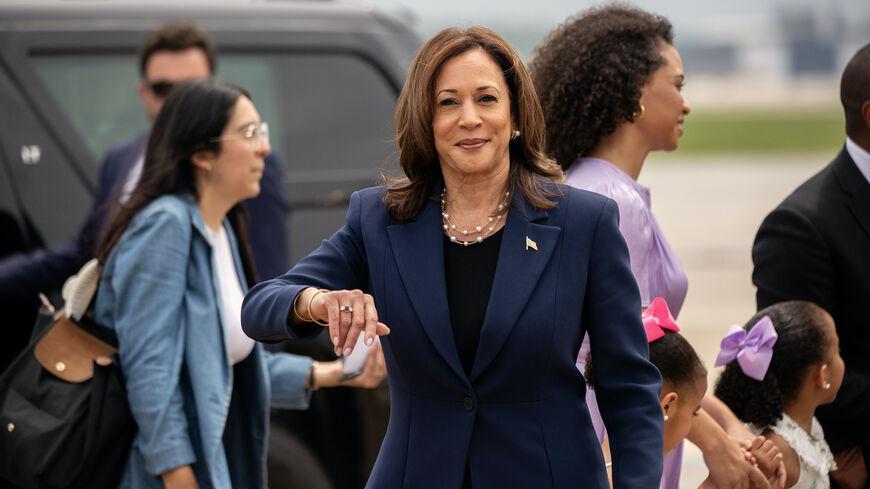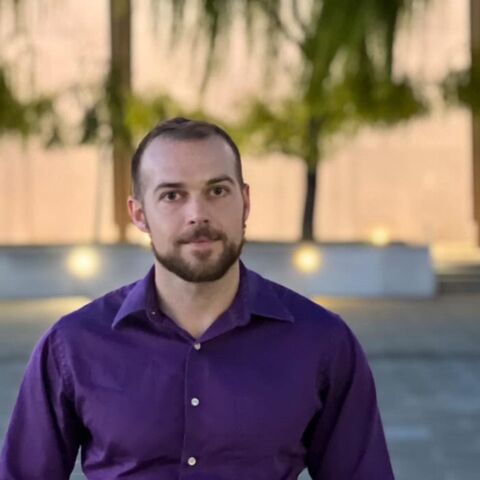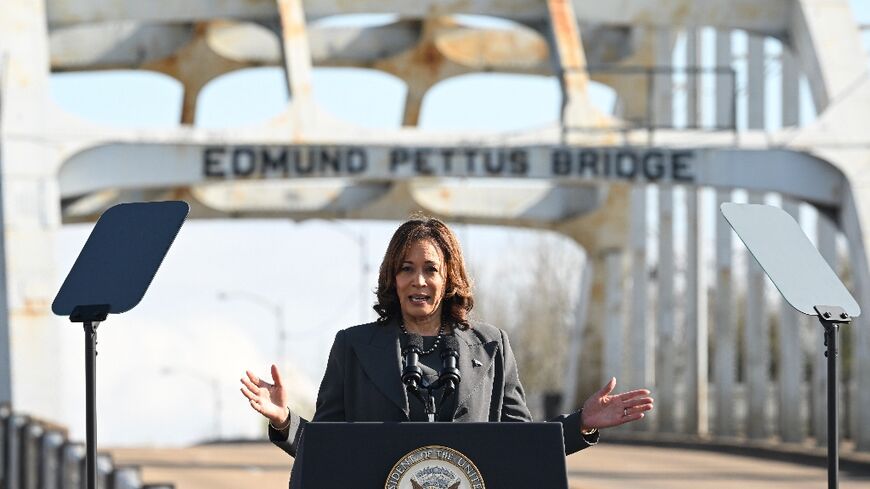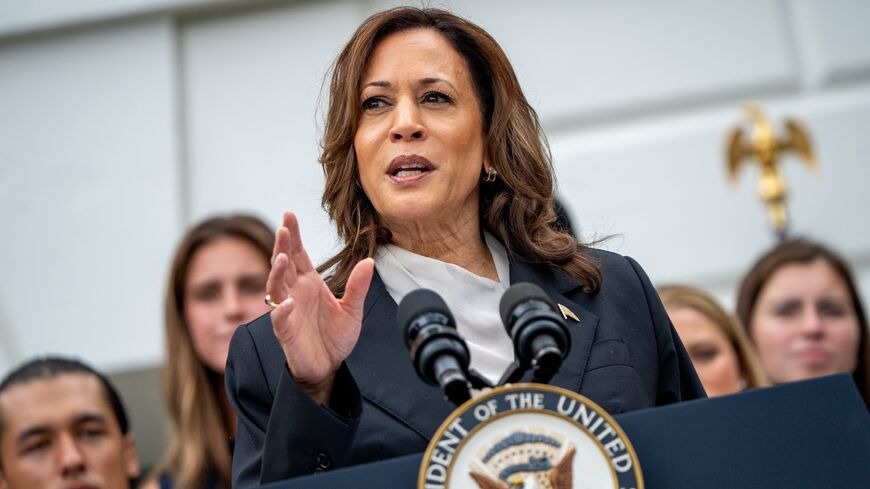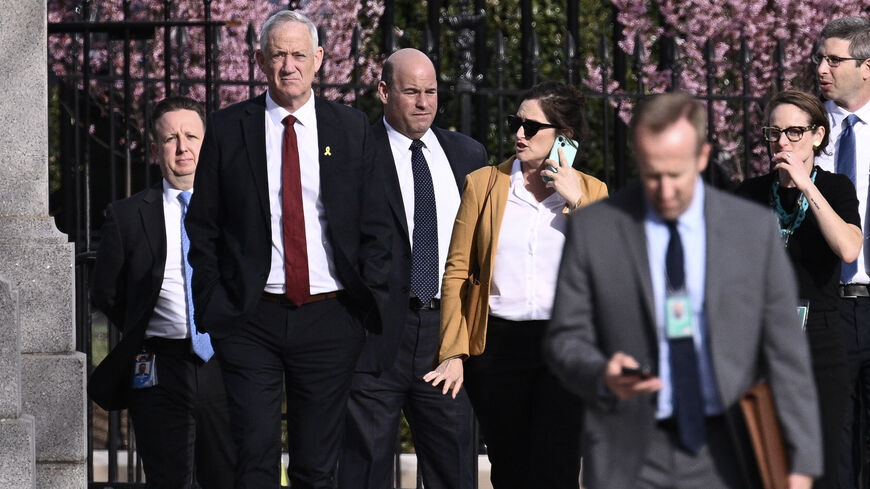Palestinians in Gaza warm to Kamala Harris, prefer 'anyone over Trump'
An informal canvasing in Gaza showed the US vice president to be Palestinians' preferred choice as the next US president.
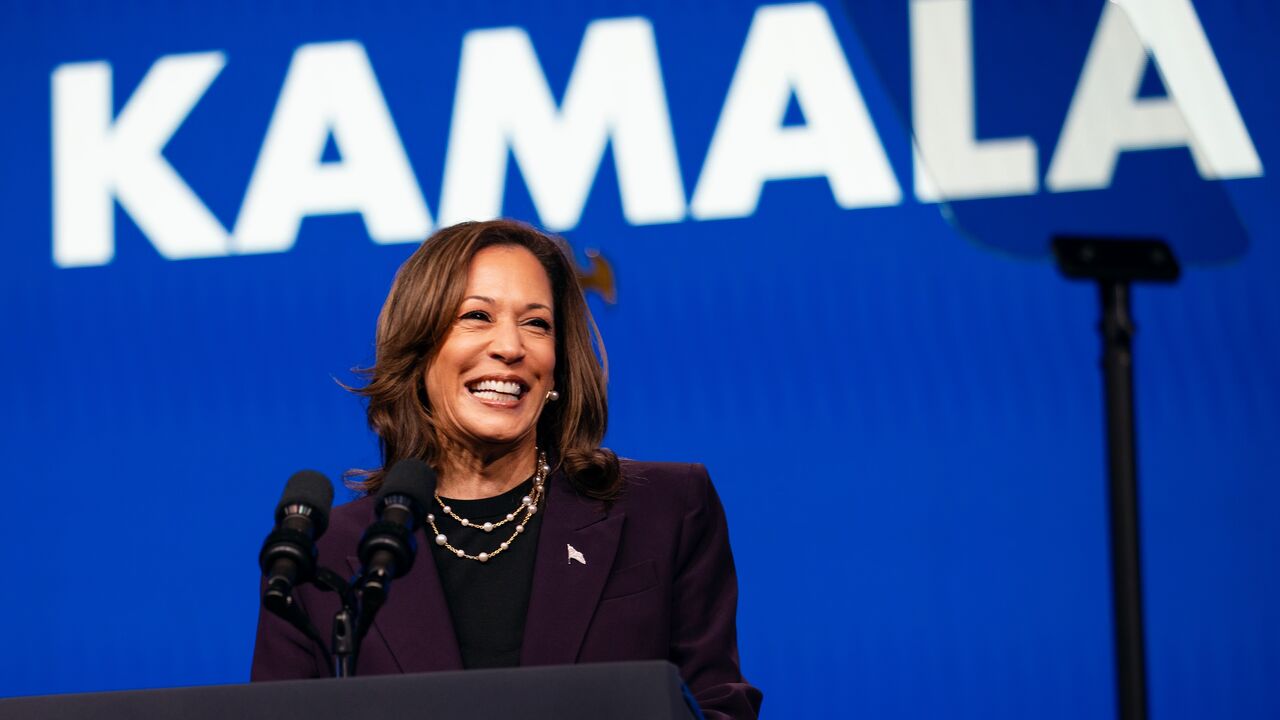
DEIR AL-BALAH, Gaza Strip — Palestinians in Gaza are closely following the latest developments in the US presidential election scheduled for Nov. 5, with Vice President Kamala Harris, the presumptive Democratic nominee, appearing to emerge as their preferred candidate.
This Palestinian preference for Harris over the Republican nominee, former President Donald Trump, can be explained by her positions and statements critical of Israeli Prime Minister Benjamin Netanyahu’s conduct of the war in Gaza as well as actions taken by Trump while in the White House, from 2017 to 2021.
Despite the wide support Israel has received from the United States, often across party lines, Palestinians are hoping that the next president will work to halt Israeli military operations in Gaza, now ongoing for more than nine months.
After meeting with Netanyahu at the White House on Thursday, Harris called for a “permanent end” to hostilities in Gaza. “It is time for this war to end,” Harris said in a televised statement. “We cannot allow ourselves to become numb to the suffering, and I will not be silent.”
Netanyahu was in Washington this week for a visit overshadowed by the war in Gaza, during which Israeli attacks have killed more than 39,000 Palestinians, according to the Gaza Health Ministry, and created a dire humanitarian crisis.
The Israeli premier delivered a fiery speech to Congress on Wednesday, in which he once again vowed to achieve “total victory” over Hamas, which launched the current war on Oct. 7 with an assault into southern Israel, killing some 1,200 people and taking 250 hostage.
US lawmakers in attendance gave Netanyahu repeated rounds of applause and standing ovations, while roughly half of all Democratic lawmakers boycotted the session, including some in the party leadership.
Palestinians took note of Harris’ absence from the session, which her campaign said was due to a previously scheduled event. She met with Netanyahu the following day at the White House.
Earlier in March, during a visit to Selma, Alabama, Harris had called for a cease-fire in Gaza and urged Israel to take steps to increase the flow of aid into the Palestinian territory.
The 'big villain'
Mohammed Abu Sharkh, displaced from northern Gaza to the Deir al-Balah camp, told Al-Monitor, “Palestinians felt helpless about the way members of the US Congress treated Netanyahu during his recent speech and lost hope for a radical change in the United States' pro-Israel policy.”
Commenting on congressional members' clapping during Netanyahu’s 55-minute speech, Abu Sharkh, who holds a master’s degree in international relations, said, “For us, the applause sounded like bombs falling on the heads of Palestinian children.”
Still, when it comes to Gaza and the next US president, he has a preference: the current vice president.
“I think Harris will have a better vision for the Palestinians, especially with regard to human rights, such as increasing aid and Gaza’s reconstruction,” he said.
Abdul Rahim al-Hayek, displaced from Gaza City to the town of Qarara, in the south, shares Abu Sharkh’s pessimism about a possible change in US policy toward Palestinians and the war, regardless of who wins the election.
“I have lived through 14 US presidents, all of whom were blatantly pro-Israel, with the exception of President Bill Clinton, who visited Gaza in 1998 to push the peace process forward,” Hayek told Al-Monitor.
Hayek said he would like to see Harris victorious in November, adding, “I prefer anyone over Trump, who recognized our future capital, Jerusalem, as the capital of Israel.”
It has been the hope of Palestinians that East Jerusalem will be the capital of any future Palestinian state.
Palestinians readily recall the collective setbacks they experienced when Trump was president. During his time in office, he made a series of decisions considered a blow to the Palestinian cause.
Most notably, Trump formally recognized Jerusalem as the unified capital of Israel in December 2017 and moved the US Embassy from Tel Aviv to Jerusalem in May of the following year. In 2019 he overturned decades of US policy and declared that Israeli settlements on the West Bank were not illegal.
Trump also suspended US aid to the UN Relief and Works Agency, which assists Palestinian refugees, and the Palestinian Authority (PA). In addition, he closed the Washington, DC, headquarters of the Palestine Liberation Organization, the internationally recognized representatives of the Palestinian people.
Shireen Zaiter, a government employee displaced from Gaza City to Deir al-Balah, told Al-Monitor, “Harris seems to sympathize more with us Palestinians, and I believe that once in the White House, she will exert pressure to end the Israeli war on us.”
As for the current Israeli prime minister, she remarked, “His position is against Harris’ political positions.” She also said that Netanyahu is not telling the truth about wanting to end the war and wants to impose a new military occupation on Gaza.
Zaiter expressed strong words about Trump, saying, “This man hates the Palestinians and perceives Arabs as animals.” She does not believe he will work to stop the war if reelected.
Rabab Abu Rahma, a high school principal displaced from Gaza City to the Nuseirat refugee camp, in central Gaza, told Al-Monitor, “Honestly, we don’t have electricity to watch the US election [campaign] on television, and there is no internet. We have been cut off from the world for nearly 10 months now because of the Israeli war.”
When asked which US candidate she prefers, however, Abu Rahma said, “I don’t know much about Harris, but I know a lot about Trump. He is a big villain to the Palestinians.”
Harris, the non-Trump
One analyst who spoke with Al-Monitor believes Harris, while still supporting Israel, may adopt a more moderate approach to the Gaza war, taking into consideration the plight of the civilian population and the deepening humanitarian crisis.
“Although Harris does not oppose Biden’s pro-war position, she opposes Israel’s policies in Gaza, especially when it comes to civilian casualties and the entry of aid into the Gaza Strip,” Talal Okal, a writer for the local Al-Ayyam newspaper, told Al-Monitor.
“Harris said no to the displacement of Palestinians, no to the reoccupation of the Gaza Strip, no to the siege, and no to the reduction of its territory,” Okal added. “She supports the reconstruction of vital infrastructure in the enclave and the strengthening of the PA’s security services there.”
Harris seems more willing to publicly criticize Netanyahu and express sympathy for Palestinian civilians in Gaza, he further remarked.
Although Trump has called for a quick end to the war and a return to normalcy, Okal believes that his statements are merely due to the electoral campaign.
“I think Trump is trying to win the votes of Muslim voters in America, but in fact he is the biggest supporter of Israel, and Netanyahu in particular,” he said.
Some 3.45 million Muslims live in the United States, constituting around 1.1% of the population, according to the Pew Research Center.



